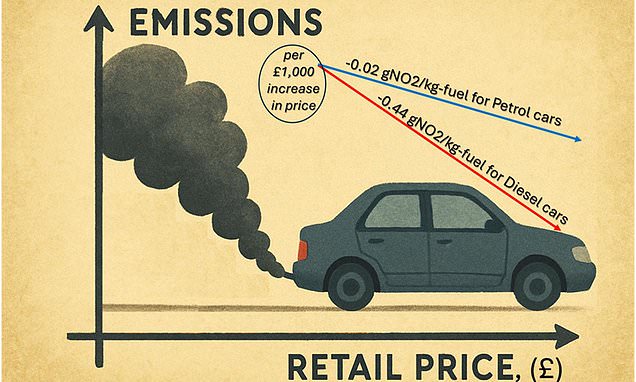Home / Environment / Cheap Cars Pollute Cities Most, Study Finds
Cheap Cars Pollute Cities Most, Study Finds
19 Nov
Summary
- Cheaper cars, often owned by low-income households, disproportionately harm urban air quality.
- Expensive vehicles emit significantly fewer pollutants, even within the same emission class.
- Targeted policies like progressive taxes and scrappage schemes are proposed to address pollution.

A recent study from the University of Birmingham indicates that lower-income households with less expensive vehicles are significantly contributing to urban air quality issues. This challenges the typical view that wealthier individuals cause more emissions through higher consumption. The research, analyzing over 50,000 vehicles, found that pricier cars generally emit fewer harmful pollutants such as nitrogen dioxide (NO₂), oxide (NOx), carbon monoxide (CO), and particulate matter (PM).
The findings are particularly pronounced for diesel vehicles, where a £5,000 car was approximated to emit 8.8 g/litre of NOx, compared to 5.6 g/litre for a £15,000 car. For every additional £1,000 spent on a diesel car, NO₂ outputs reduced by about 0.4 g/litre. This correlation suggests that spending an extra £10,000 on a diesel car could lead to over a 40% reduction in NOx emissions.
To tackle this issue, scientists are calling for policy interventions such as progressive tax structures based on vehicle emissions and price, alongside rebate or scrappage schemes for lower-income households. These measures aim to incentivize the adoption of cleaner vehicles and address the environmental injustice where disadvantaged urban areas bear the brunt of local air pollution.




